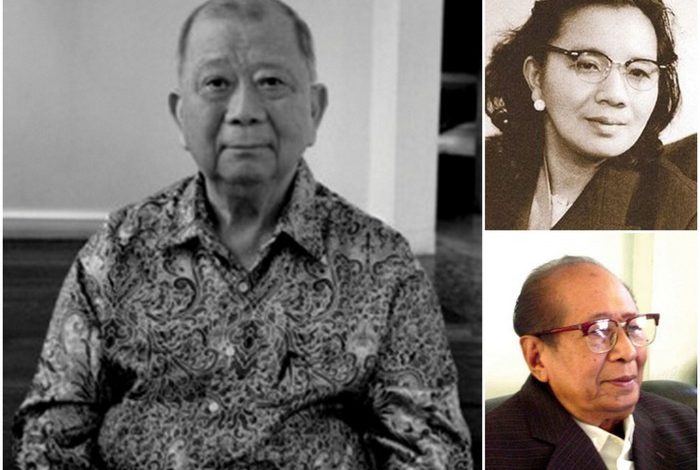Editorial: Much Ado About Nothing


By Fathol Zaman Bukhari
UMNO and PAS leaders were up in arms over reports that late Chin Peng’s ashes were smuggled in from Thailand and then scattered at different places in the country.
Tuan Ibrahim, Pas deputy president, insisted that the act disrespected the feelings of those who fought against members of the outlawed Malayan Communist Party (MCP). UMNO’s Mohd Puad Zarkashi argued that Chin Peng’s ashes should not be brought back because Chin Peng did not want to return to Malaysia. Najib Razak, not wanting to miss a publicity opportunity, said that the action would impact peace and harmony of the country. Others felt it was tantamount to glorifying communism.
Veterans Association president Shahruddin Omar expressed that it was an insult to those who fought the communist terrorists. These are standard responses whenever Chin Peng’s name crops up. Therefore, it is nothing new or out of the ordinary.
Chin Peng was no hero. He and his merry men first fought the British colonialists, then the Japanese and finally against newly-independent Malaya. Hundreds of Malaysians, soldiers and civilians, Malays and non-Malays, died in what came to be known as the Malayan Emergency. With help from British and Commonwealth troops and the efforts of our own army, the terrorists were pushed across the Thai border where they slowly withered away.
On December 2, 1989, Chin Peng and his lieutenants signed a peace treaty with the government of Malaysia, formally ending their 21-year-long armed struggle. In exchange for laying down their arms, the government agreed to allow all CPM leaders, including Chin Peng, to return to Malaysia. This was repeatedly confirmed by former Inspector-General of Police, Rahim Noor who played a key role in the Hatyai peace accord of December 1989.
I wish to recall a bit on the eventful accord in Hatyai in December 1989. Around that time my battalion was on an operational tour of the Belum Forest complex. The area was designated an operational sector to facilitate search and destroy operation by troops. An operational tour will last anything between three and four months, depending on the urgency of the task in hand.
Since the forest reserve was under a 24-hour curfew, human activities were virtually non-existent. Being forewarned of the unfolding event in Hatyai, we were on our toes to forestall any untoward incidents from happening. Fortunately, nothing dramatic happened.
Active patrolling of the sector was maintained stretching from the Thai border to the Perak River. We uncovered many tracks and signs left by poachers and those looking for kayu gaharu (agarwood). We managed to apprehend a few, mainly Thais and handed them to the police in Grik. The Belum Forest Reserve was devoid of enemy activities during that period in time.
Now back to Chin Peng. The government, however, did not honour their word. The authorities prevented him from returning on the grounds that he was the leader of an insurgency movement. Allowing him to return would offend the sensibilities of soldiers who fought against the terrorists and an affront to those who died during the Emergency. I am an ex-soldier, I don’t feel offended.
Chin Peng wanted to return home. He engaged lawyers to challenge the home ministry’s ban on his return. In 2009, the Federal Court concluded that since he was unable to prove that he was born in the country he was barred.
The home ministry had acted in bad faith by refusing to accept the fact that he was born in Sitiawan and had friends and family there to prove it. Other leaders such as Shamsiah Fakeh had no trouble returning home although she had been living in China for many years. Even her non-Malaysian family members were allowed in.
As for him being the leader of the movement, it ignores the fact that others too had leadership roles in both the party and the party’s armed wing – the Malayan National Liberation Army. Abdullah CD was once the chairman of MCP and commander of the Malay-dominated 10th Regiment operating in Kelantan. Rashid Maidin, the first Malay to join the Malayan Communist Party, was also a senior commander of the 10th Regiment.
They all played key leadership roles, participated actively in the armed struggle and yet were allowed to return home following the 1989 Hatyai peace accord. Chin Peng was unfairly judged and punished.
Whichever way you look at it, there is no escaping the fact that ethnicity played a huge role in the whole affair; if Chin Peng were a Malay-Muslim, he would have almost certainly been allowed to return home along with his old comrades Abdullah CD, Rashid Maidin and Shamsiah Fakeh. Both Prime Minister Dr Mahathir Mohamad and ex-IGP Rahim Noor had alluded to this.
Why is it that even the return of Chin Peng’s ashes is considered offensive to some veterans while the return of Malay-Muslim members of the CPM’s armed wing created no outcry whatsoever?
Chin Peng and his merry men are history now; the nation has moved on. We are friendly with Japan whose army committed atrocities against our people during the Japanese Occupation. We now enjoy good relations with China which supported the MCP, provided refuge for many of its leaders and hosted the party’s clandestine radio station, Suara Rakyat Malaya.
Why is it so difficult to move on when it comes to Chin Peng? Is his ethnicity a huge stumbling block that even his ashes cannot be returned to Malaysia? Has Chin Peng become, in death, a convenient tool for the Ketuanan Melayu bigots?
When Noordin Mohammad Top, who was implicated by Indonesian authorities in the bombing of a hotel in Jakarta and a nightclub in Bali was killed in a police raid in Solo, Central Java in 2009, Putrajaya allowed the return of his remains to his hometown in Pontian where he was subsequently interred.
Honestly, I don’t really know where we are heading as a nation? We work ourselves into a frenzy over the ashes of a leader of an outlawed organisation and ostracise people with alleged links to a defunct Sri Lankan terrorist organisation while mollycoddling fighters and supporters of Islamic State and Al-Qaeda.
We are definitely sending the wrong message to the world. Over here, race and religion predominate and will ultimately determine one’s luck. It is simply mind-boggling.


